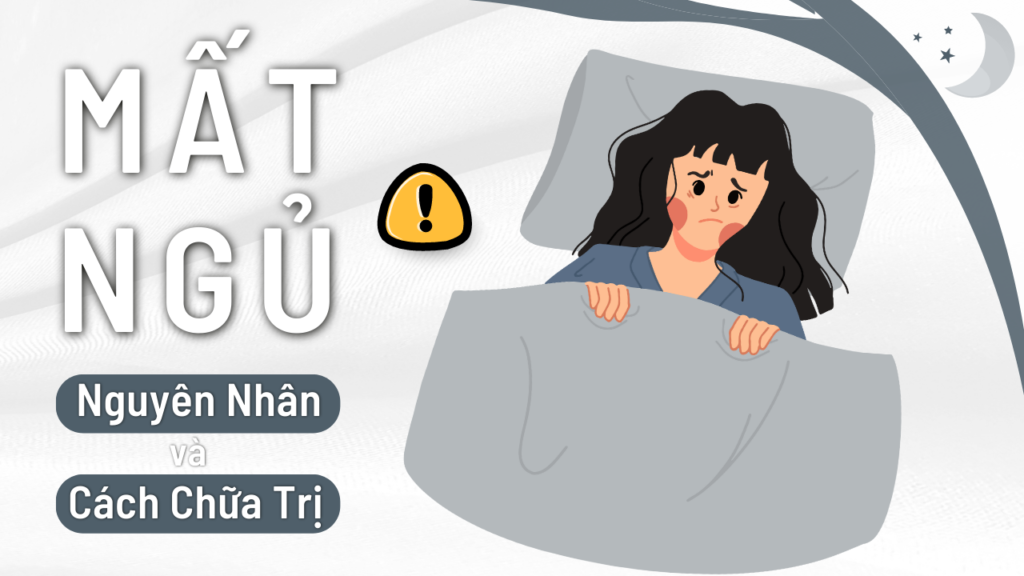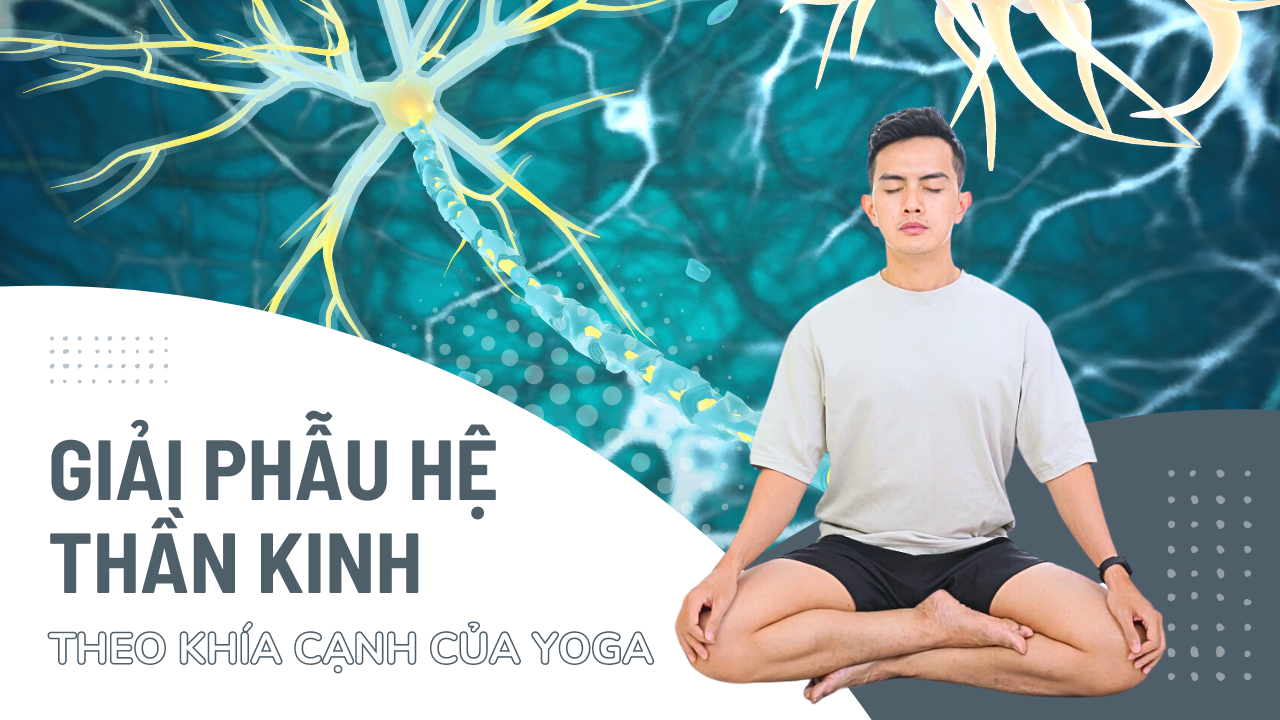The number of people suffering from insomnia is increasing at an alarming rate, among us have certainly experienced insomnia or trouble sleeping. Insomnia makes our life stagnant or stressful, moreover makes it difficult for the mind to be stable and alert. In this article, Nguyen will discuss the causes, symptoms and treatment of insomnia.
Insomnia, what is trouble sleeping?

This is a common sleep disorder that can make it difficult to fall asleep, stay asleep, or cause you to wake up too early and be unable to fall back asleep. You may feel tired when you wake up, and sleep loss can impair not only your energy levels and mood, but also your health, performance, and quality of life.
Insomnia is divided into two main categories, short-term (acute), lasting for days or weeks, and long-term (chronic), lasting a month or more.
What are the symptoms of trouble sleeping?
Insomnia is not difficult to recognize through the following typical symptoms:
- Difficulty sleeping at night.
- Wake up in the night.
- Waking up too early.
- Not feeling comfortable after a night of sleep.
- Daytime fatigue or drowsiness.
- Irritability, depression or anxiety.
- Difficulty paying attention, concentrating on tasks, or remembering.
- Constant anxiety about sleep.
What are the causes of insomnia?
Insomnia is often the result of stress, depression, life events, or habits that disrupt sleep. Common causes of insomnia include:
- Stress, stress: Worries about work, school, health, finances, or family can keep your mind active at night, making it difficult to sleep.
- Travel or business schedule: Your circadian rhythm acts like an internal clock that guides things like your sleep-wake cycle, metabolism, and body temperature. When the body's circadian rhythm is disrupted, it can lead to insomnia. Causes include time zone differences due to traveling across multiple time zones, working late or early shifts, or frequently changing shifts.
- Poor sleep habits: Bad sleep habits including irregular bedtime schedule, napping for too long will also lead to insomnia at night. Another cause is an uncomfortable sleeping environment, or eating or watching TV, computer, smartphone too much before bed can interfere with your sleep cycle.
- Overeating late in the evening: Having a bedtime snack is a normal habit, but eating too much can make you feel physically uncomfortable while lying down. Many people also experience heartburn, a reflux of acid and food from the stomach into the esophagus after eating, which can keep you awake and unable to fall asleep.
- Mental health disorder: Anxiety disorders, such as post-traumatic stress disorder, can disrupt your sleep.
- Medicine: Many prescription medications can interfere with sleep, such as some antidepressants and medications for asthma or blood pressure. Many over-the-counter medications, such as some pain relievers, cold and allergy medications, and weight loss products contain caffeine and other stimulants that can disrupt sleep.
- Caffeine, nicotine and alcoholDrinking coffee, tea, caffeinated drinks or stimulants like alcohol or beer in the late afternoon or evening can make you sleepless at night. In particular, the nicotine in tobacco products is a stimulant that can interfere with sleep.
If insomnia is making you mentally exhausted and making it difficult to function normally, see your doctor right away to determine the cause of your sleep problems and how to treat them safely.
Is having trouble sleeping dangerous?
Sleep is just as important to your health as a healthy diet and regular physical activity. Whatever the reason for your insomnia, insomnia can affect both your mind and body. People with insomnia reported a lower quality of life than those who slept well. Complications of insomnia can include:
- Lower performance at work or at school.
- Reaction times are slower while driving and the risk of an accident is higher.
- Mental health disorders, such as depression, anxiety disorder or substance abuse.
- Increased risk and severity of long-term diseases or conditions, such as high blood pressure and heart disease.
How to prevent insomnia, trouble sleeping
Good sleep habits can help prevent insomnia and promote good sleep:
- Keep bedtime and wake-up times consistent from day to day, including weekends.
- Staying physically active, as regular, regular activity helps promote good sleep. Subjects such as yoga, badminton, walking, etc.
- Check your medications to see if they may be contributing to insomnia.
- Avoid or limit napping.
- Avoid or limit caffeine, alcohol, and no nicotine use.
- Avoid large meals and drinks before bed.
- Make your bedroom comfortable to sleep in and only use it for sex or sleep.
- Create a relaxing ritual before bed, such as taking a warm bath, reading, or listening to soft music.
4 yoga moves to treat insomnia
Yoga movements breathing and stretching the neck

- Sit in a comfortable position
- Breathe, breathe evenly with each breath
- Bring your right hand over and place your left hand on the right head area
- Gently pull your head to the left and breathe evenly
- Switch sides and do the same with the other side.
Cat and Cow Yoga Movement


- Stand with your hands and knees shoulder-width apart, knees and hips kept in a straight line, wrists and shoulders also in line, back in a neutral position.
- Inhale – push your belly and chest down, create a curve in your back, gently lift your chin.
- Then, as you exhale, curl your back upward, drawing your chin toward your chest.
- And so repeat 5 times in this position.
Yoga movements straighten the legs up

- Straighten your legs to the ceiling
- Hold your legs with both hands, straighten your legs, and breathe evenly.

- If you can't get a two-legged grip, you can also use a belt or towel to make it easier to hold.
Yoga Savasana – Corpse Pose

- To do this pose, straighten your arms and legs and lie in the most comfortable position.
- Let your hands rest at your hips and gently tilt your palms. Then close your eyes, breathe evenly here.
- With each breath, you will relax each body part in turn from the tips of your toes up to your head area.
- Lie down and relax your whole body and mind in Savasana for 5-10 minutes.
Nguyen hopes that the above sharing will be effective and useful for your insomnia and sleep problems. Please follow and wait with Nguyen the posts about health and next Yoga!
References
https://www.mayoclinic.org/diseases-conditions/insomnia/symptoms-causes/syc-20355167
https://www.vinmec.com/vi/news/health-news/general-health-check/what-types-of-insomnia-are-there/
https://www.webmd.com/sleep-disorders/insomnia-symptoms-and-causes



